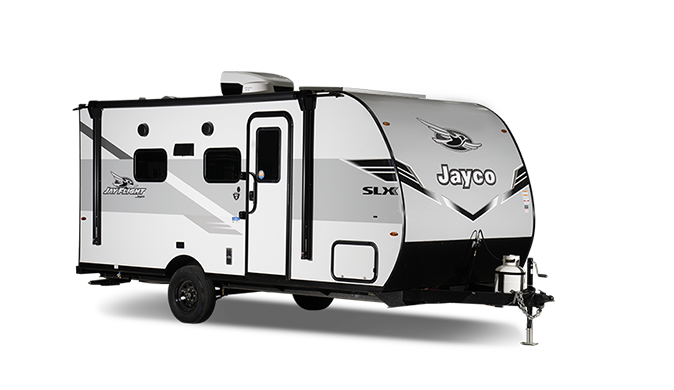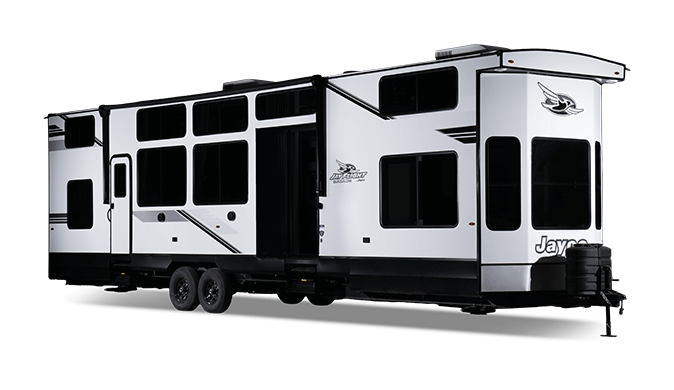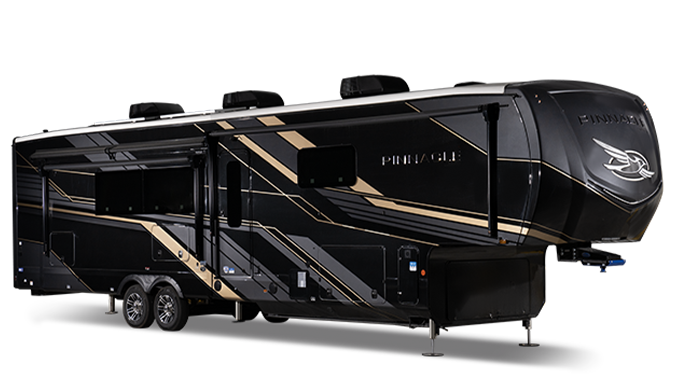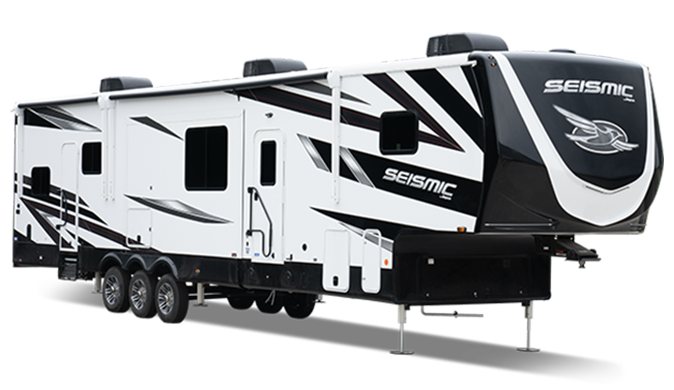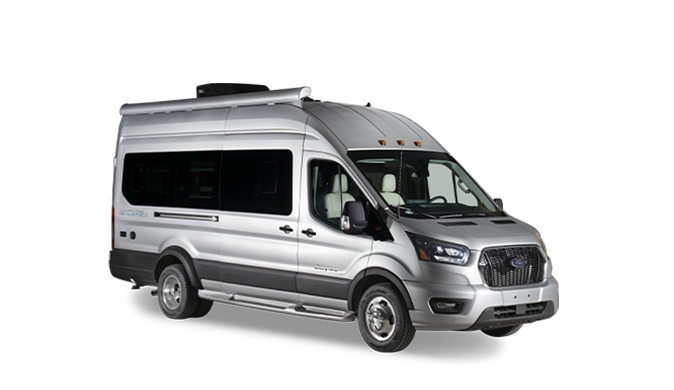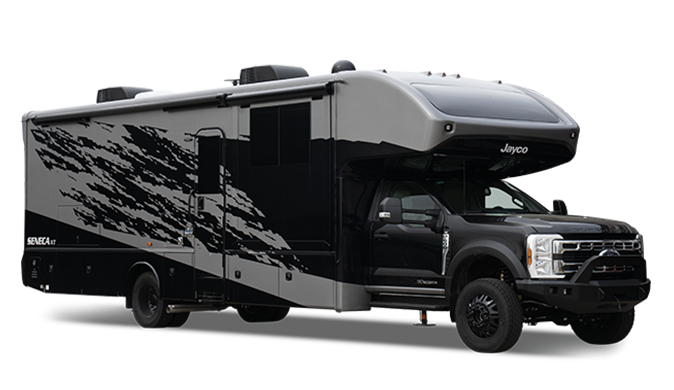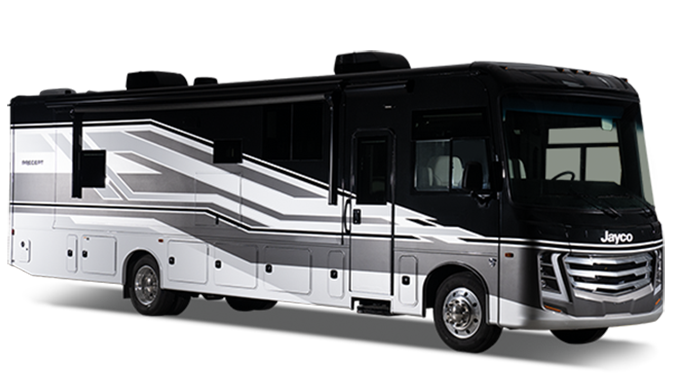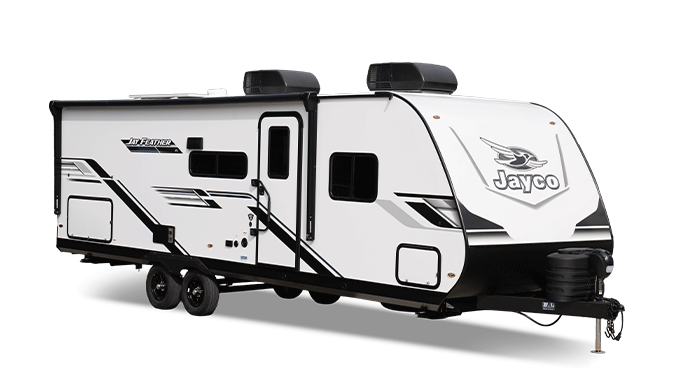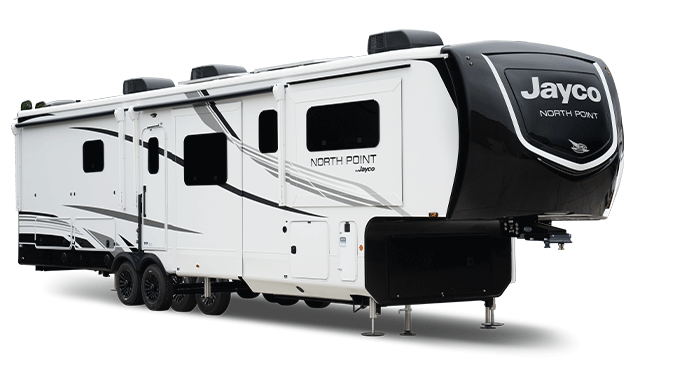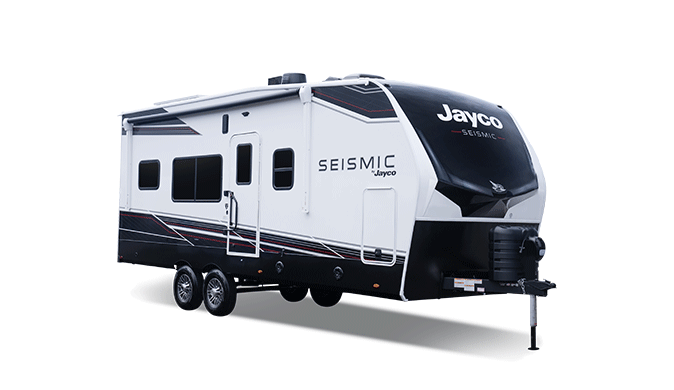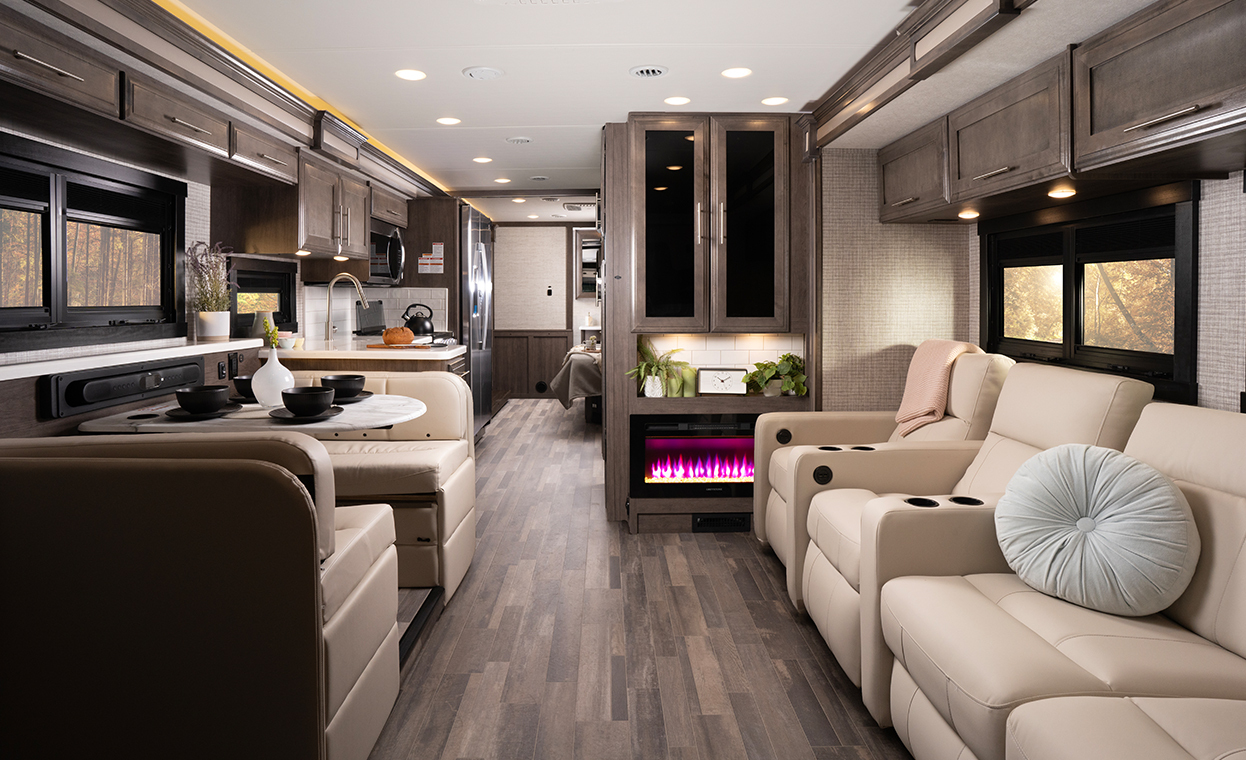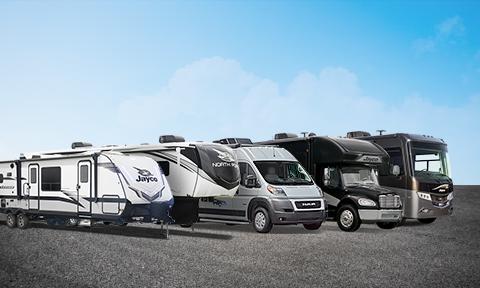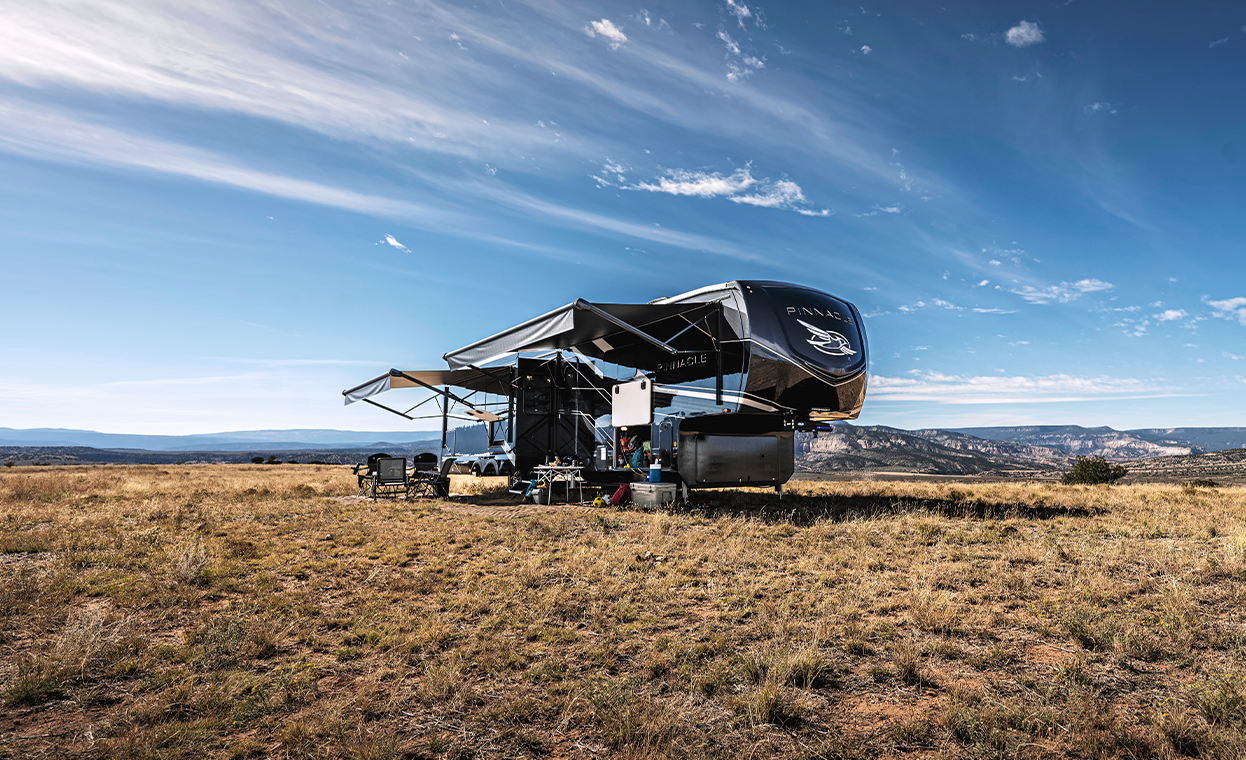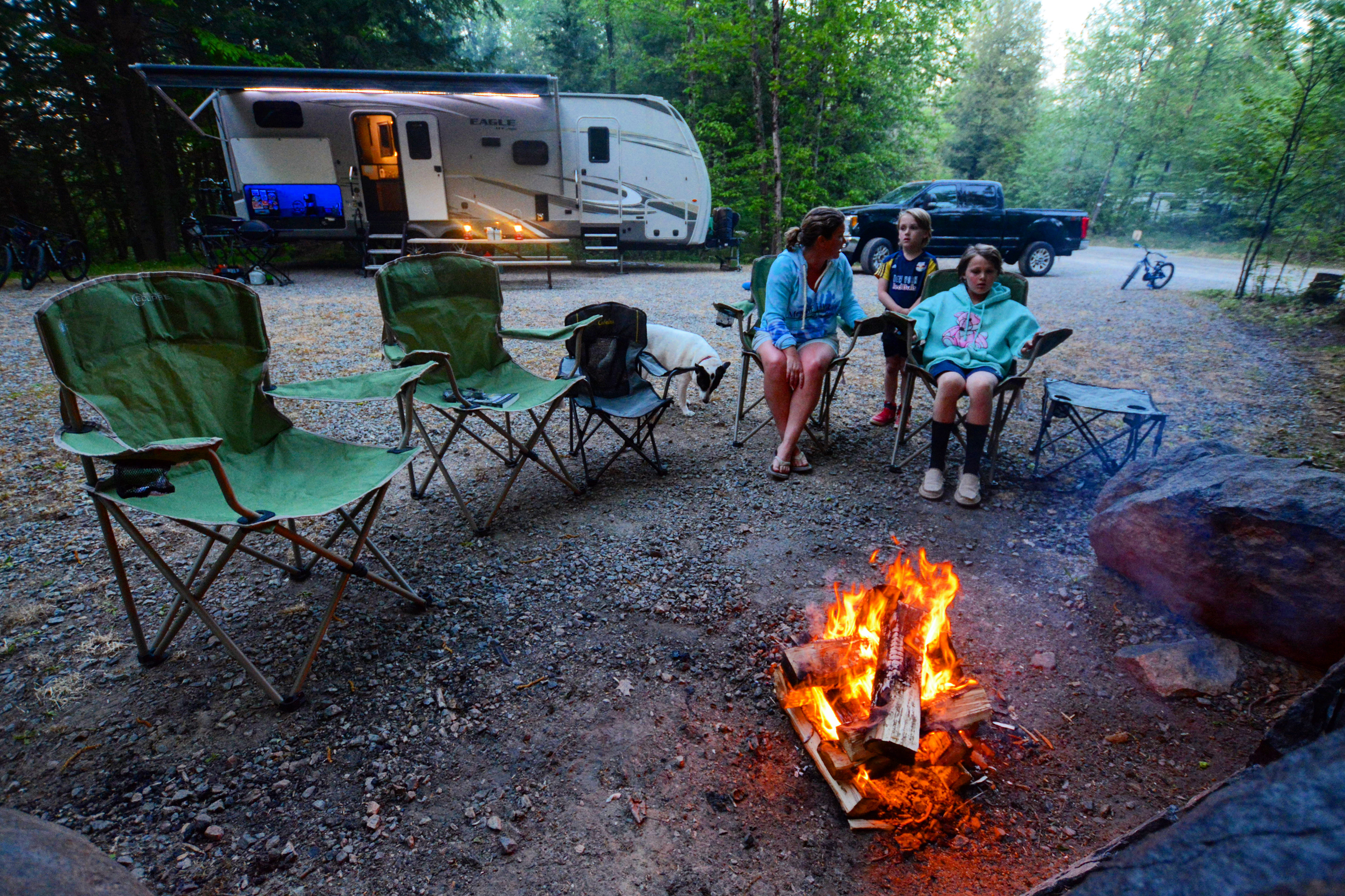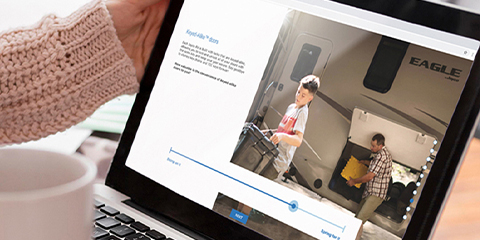Buying an RV is one of the most exciting purchases you can ever make. But where should you actually take it camping? There are so many amazing camping options in the United States and Canada that the possibilities for adventure can seem endless. But the abundance of choices can also be overwhelming. So where to begin? The best way to narrow down your options is to figure out your own personal camping style.
Knowing what you are looking for in terms of both natural beauty and amenities might be the most important part of having amazing camping adventures. Want a peaceful escape without any cell signal or Wi-Fi, where you can gaze up at the stars? You can have that. Want a bustling resort with waterslides, golf carts, food service, and outdoor movies? You can have that too. The most important thing is knowing what you want, and that can be tricky to figure out when you don’t have a lot of camping experience.
So let’s break down and explain the two broad categories of campgrounds (public and private) so you can start developing your own bucket list of campgrounds to visit in the years to come.
Public Campgrounds
Campgrounds that are in county, state, or national parks are considered public campgrounds. So are campgrounds built and managed by the Army Corps of Engineers. So what are the basic hallmarks of public campgrounds? They are almost always significantly less expensive than private campgrounds--sometimes less than half the price. They often have limited amenities and limited (or no) hookups. But they often offer large, private sites in the most stunning locations. Public campgrounds are great for campers who want to get back to nature and enjoy some well-earned peace and quiet.
Here are a few different types of public campgrounds...
State Parks:
[caption id="attachment_5928" align="aligncenter" width="300"]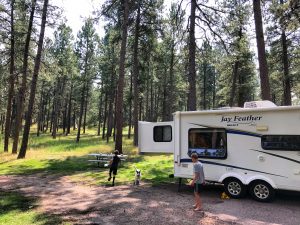 Custer State Park, South Dakota[/caption]
Custer State Park, South Dakota[/caption]
The most popular state park campgrounds are often difficult to book so you should try to get a site on the day the reservation window opens up. This will require some advance planning, but the reward will be huge. Think large sites, in beautiful locations, at affordable prices. Time to start planning now!!
County Parks:
[caption id="attachment_5927" align="aligncenter" width="300"]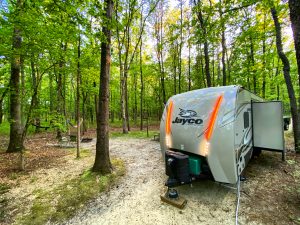 Turkey Swamp Park, New Jersey[/caption]
Turkey Swamp Park, New Jersey[/caption]
County Parks often fly under the radar and are often most used by locals. They may not always be located in name brand locations, but they offer peace and quiet for a fraction of the cost of private campgrounds. They are great for getting back to nature and kicking back and relaxing for the weekend.
National Parks:
[caption id="attachment_5926" align="aligncenter" width="300"]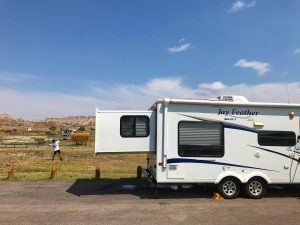 Cedar Pass Campground, Badlands National Park[/caption]
Cedar Pass Campground, Badlands National Park[/caption]
NPS campgrounds are often located in prime locations in the heart of our country’s astonishingly beautiful national parks. Sites are difficult to get at popular national parks like Yellowstone and Yosemite, so advanced planning is a must. Many NPS campgrounds do not offer water and electric hookups, so plan on being prepared to dry camp in most situations.
Corps of Engineers:
[caption id="attachment_5925" align="aligncenter" width="252"]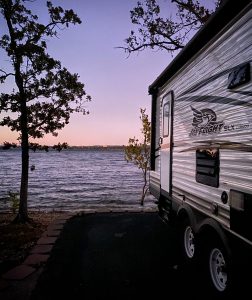 Old Highway 86 COE Campground, Missouri[/caption]
Old Highway 86 COE Campground, Missouri[/caption]
Most RV owners don’t know much about Corps of Engineers (or COE) campgrounds, because they can be a bit difficult to find online. But they are worth seeking out. Most are located directly on the water and offer large sites and basic hookups at great prices. If you love to kayak or SUP then COE campgrounds will quickly shoot to the top of your bucket list.
Private Campgrounds
Private campgrounds are operated by families or companies and include local mom and pop operations, KOA and Jellystone Franchises, and a wide variety of RV resorts that have varied ownership. So what are the basic hallmarks of private campgrounds? They almost always offer full hookups and often have amenities such as pools, playgrounds, dog parks, and laundry rooms. They are almost always more expensive than public campgrounds in the same region. Private campgrounds are great for those who want great facilities and customer service.
Family-Owned Campgrounds
[caption id="attachment_5923" align="aligncenter" width="300"]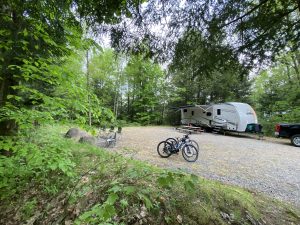 Moose Hillock, New York[/caption]
Moose Hillock, New York[/caption]
Family owned campgrounds can range from rustic to resort. But most offer activities and amenities that are not present at a typical state or county park. Many of them will have pools and playgrounds that make them great for RV owners with children. They also typically have staff on hand to help new campers and on-site camp stores in case you forget ketchup or other pantry basics.
KOA Campgrounds
[caption id="attachment_5921" align="aligncenter" width="300"]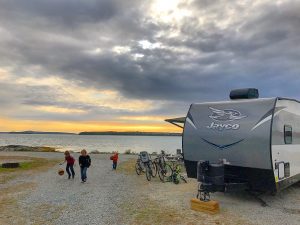 Bar Harbor KOA, Maine[/caption]
Bar Harbor KOA, Maine[/caption]
KOA is a franchisee system and the vast majority of their 500+ campgrounds are operated by families and small business owners. KOA has a branding system that labels most of their campgrounds with either a Journey, Holiday, or Resort designation. Journey campgrounds make for excellent overnight stops. Holiday campgrounds serve as great basecamps for exploring a region. Resorts offer an all-in-one experience for a complete vacation right on-site.
Jellystone Park Campgrounds
[caption id="attachment_5920" align="aligncenter" width="300"]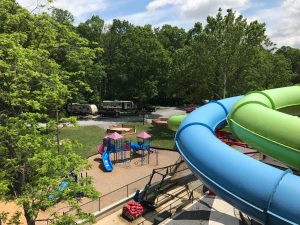 Jellystone Park, Maryland[/caption]
Jellystone Park, Maryland[/caption]
Jellystone Park Campgrounds are designed for families and typically offer robust activities and amenities. Think summer camp with character visits from Yogi and his friends. Most Jellystones have excellent pools and some even have off-the-hook waterparks. Jellystone campgrounds are also good for families with teenagers because they typically have a wide variety of sports courts and playing fields. If they have laser tag make sure you sign up to play. You won’t regret it.
Resort Campgrounds
[caption id="attachment_5917" align="aligncenter" width="240"]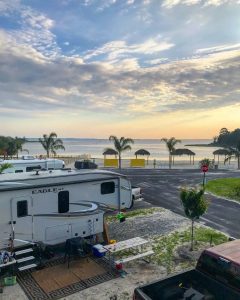 Massey's Landing, Delaware[/caption]
Massey's Landing, Delaware[/caption]
Resort camping is on trend in many parts of the country. These campgrounds offer just about everything that a high end resort hotel offers, but you get to pull your RV up instead of staying in a hotel room. Think pool bars, on-site restaurants, hot tubs, yoga classes, and even concierge service at the front desk. Resort campgrounds charge a lot more but if you want to camp in the lap of luxury than they might be for you.
We are living through a golden age for American camping. There has never been a wider variety of camping experiences to choose from. If you do a little research and figure out your personal camping style, then you will soon find yourself on the road to adventure. Hopefully, like we are, as the proud owners of a Jayco RV.
Jeremy Puglisi is the co-author of See You At The Campground: A Guide to Discovering Community, Connection, and a Happier Family in the Great Outdoors. He is also the co-host of the RV Atlas podcast. He loves nothing more than hitching up and heading out in his family’s Jayco Eagle HT 264BHOK.

